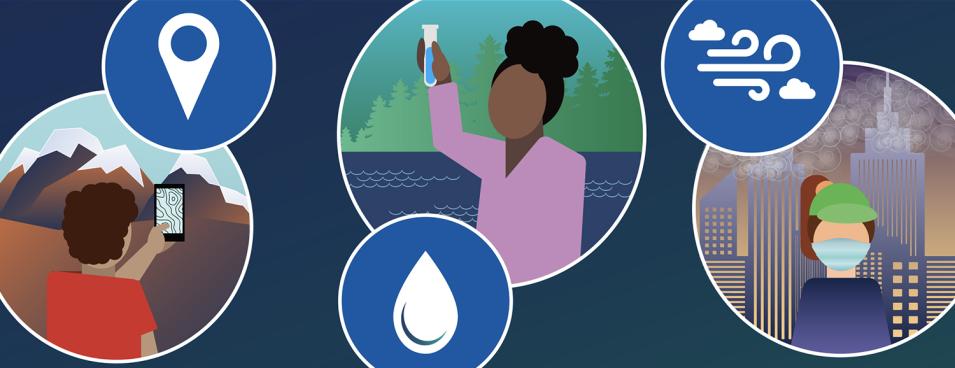The Earth Science Data Systems (ESDS) Program embraces community engagement as we strive toward our goal of making NASA Earth science data freely available to all users. Our teams work to understand the Earth science data needs of communities that don't historically use NASA data, but who stand to benefit from learning how to access and apply the data they need to address local, on-the-ground challenges such as resource allocation, disaster management, and air quality tracking.
UNBOUND
NASA's Understanding Needs to Broaden Outside Use of NASA Data (UNBOUND) project leads a series of coordinated, domain-specific workshops designed to match influential analysis and visualization practitioners in target communities with NASA data scientists and others knowledgeable in the field. This collaboration helps ESDS define barriers to using these data and implement high-impact activities that will put NASA data at the forefront of policy decisions and dramatically broaden the use of NASA Earth Science data in communities outside of the NASA research community.
Environmental Justice
We strive to use Earth observation data to identify and understand how environmental issues disproportionately impact vulnerable communities. Learn more about how Earth observations are being used to identify areas of environmental injustice and aid decision-makers in their response.
NASA Environmental Justice Data Search Interface
For quick access to the data, explore hundreds of datasets related to environmental and climate justice through the NASA Environmental Justice Data Search Interface. Results are categorized within eight focus areas: Climate Change, Disasters, Extreme Heat, Food Availability, Human Dimensions, Health and Air Quality, Urban Flooding, and Water Availability.
